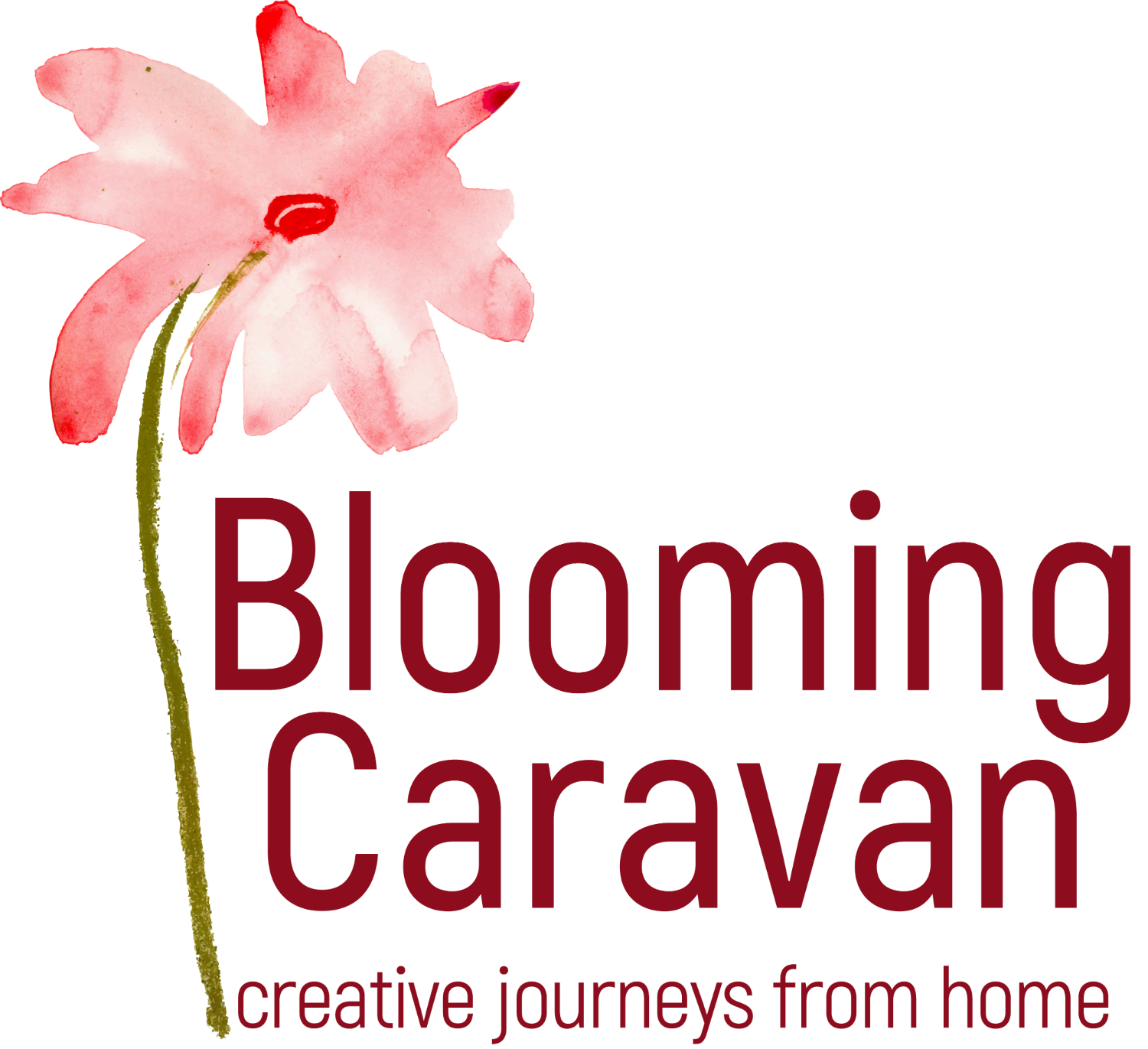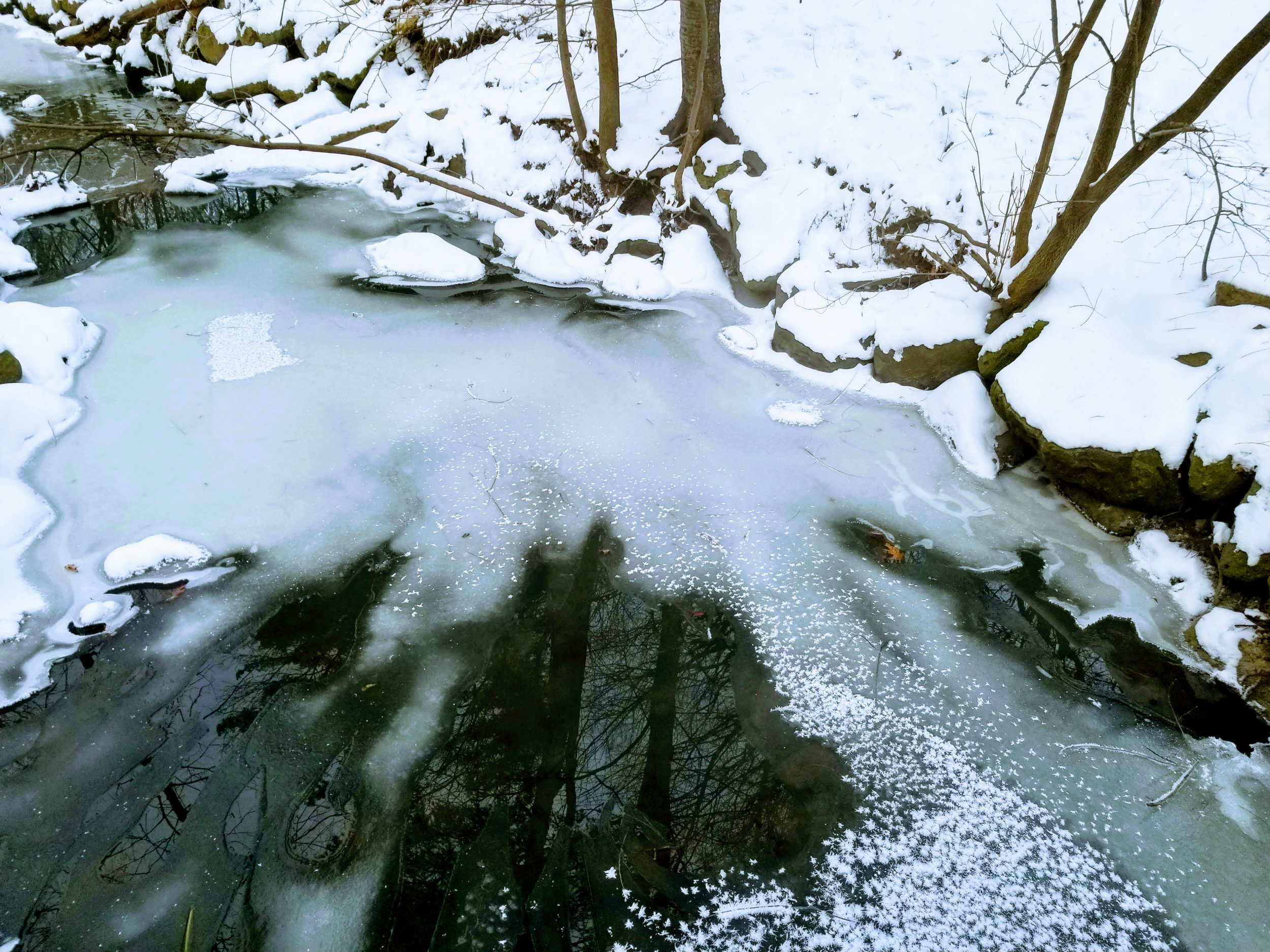Ringing in the New Year in High Park
Blooming Caravan Founder, Emma Rooney talks about her recent workshop at the High Park Nature Centre and how to make nature your everyday companion in the new year
Why is it important to spend the beginning of the year reflecting and connecting with nature?
Growing up, I had a friend who refused to go out for New Year’s Eve. She said that for her it was important to be in a place that reflected where she wanted to be for the rest of year—at home with her family. If you have an inkling that you want more nature in your life this year, why not take the time to prioritize your relationship with the natural environment? As far as New Year’s resolutions go, we’re used to setting fitness goals and making self-care plans, but we take nature for granted and see it as something that will always just be there. We trick ourselves into thinking that we can wait until the weather improves, or the season changes, or we have a camping trip booked. We miss the tiny changes that are happening every second of every day, that magic moment when the pond goes from having a thin crust of ice to becoming a solid frozen structure.
Watching the Bill Gates documentary series on Netflix, I was most fascinated to learn about the “think weeks” he takes regularly to catch up on his reading and give himself time to reflect. The idea that even Bill Gates needs to make time in his schedule to think made me realize how important it is to plan for my own desires. Although we’re surrounded by nature in the city, as we go through our days it may not feel natural to take notice of the tree right outside our window or the goldenrod growing in the parking lot. Noticing nature and making connections requires our attention, and a change in season or the start of a new year is the perfect time to hone that skill. The great thing about living in a city filled with green space is that we don’t necessarily have to head out to a cabin in the woods, like Bill Gates, to focus our attention. We can choose to hold our own nature retreat every time we step outside, and in fact, you can even begin to do it with your morning coffee in hand while looking out your window.
Can you tell us more about the nature intuition cards that participants will make in the New Year Nature workshop? How will they support a year-long commitment to connecting with nature?
I heard Anishinaabe Ojibway Grandmother Kim Wheatley talking on the CBC radio at the summer solstice about the importance of setting intentions. She said, “It's the time when we come together, and we set out intentions. We ground ourselves to what's truly important. We get ready to welcome this new season, this new spiritual opportunity to reinforce our relationship to ALL beings. And offer that gratitude, because what we intend is what we will meet. Because intent travels ahead of physical actions, so you want to intend well, so what you meet is the nicest of things.”
The set of nature intuition cards that each participant will be making in the workshop is first about setting intentions. Then it’s about having some fun and opening up our creativity while we fill the blank cards with a word, image, quote, or tiny piece of poetry that speaks to us and can help us on our journey to build “more than human” relationships. My hope is that the cards will be different from a to-do list that we’ll all have forgotten by the end of January. They’ll be there to be drawn upon as a daily practice or to keep hidden away until you feel distracted and need a reminder to go back to your nature intentions. They aren’t a secret recipe, and neither is the retreat that I’ll be offering.
Every time I spend time learning, I wake up to how much I don’t know. Just like you’ll never know everything about birds by memorizing a bird ID guide, the same goes for nature connection. The retreat acts as a guided space where we can learn from each other, but there has to be space to learn from nature. It’s really in experiencing nature that we find the desire to keep connecting. I can read about trees all day, but when I see an oak leaf twirling in the sky I look up, and I feel that little bit of wonder that draws me back to the oak savannah the next day and the next day.
How can being in nature serve us as individuals and communities?
As a horticultural therapist, I spend a lot of time helping people connect to the health benefits of nature. Personally, I love spending time in High Park because it keeps me sane and it’s like having a free gym membership. It’s also largely for selfish reasons that I support street tree planting. Have you noticed how much better neighborhoods with mature trees look and feel, never mind the environmental benefits?
At the same time, I can’t say that I don’t worry about how my relationship with nature may be one-sided. Appreciating nature and being an environmentalist are not the same thing, but it is amazing how putting up a bird feeder for viewing entertainment has made me much more interested in learning about birds and, in turn, gardening with birds in mind. A similar interest was sparked when my parents got beehives in their backyard last summer, I started finding out about native bees, which are different from honeybees, and the importance of pollinator-friendly plants. I don’t think I’d be as passionate about protecting the black oak savannah if it hadn’t become my favourite place in the city to feel relaxed, and I wouldn’t have known how it made me feel without years of spending time there.
Though it may feel like small steps, I get the strong sense that a desire to connect with nature, for whatever reason, is necessary to develop a deeper desire to protect the environment. I also find that even if you like solitude in nature, it’s important to take the time meet up with like-minded individuals to share your joy and also the ecological grief that appears when you learn to love something that’s being destroyed. We can support each other and build stronger networks for environmental action, and our local parks are the perfect meeting place to enjoy spending time in nature together.
Interview originally published by the High Park Nature Centre, December 18, 2019


